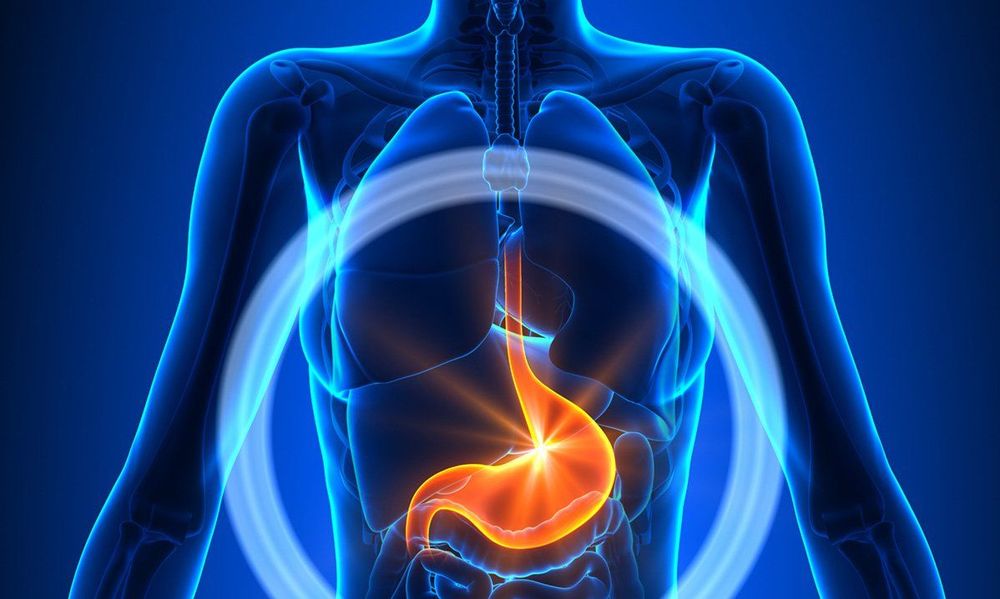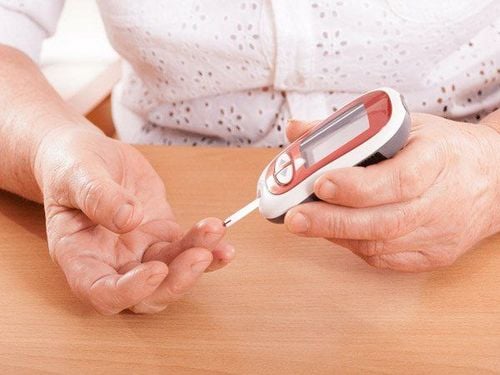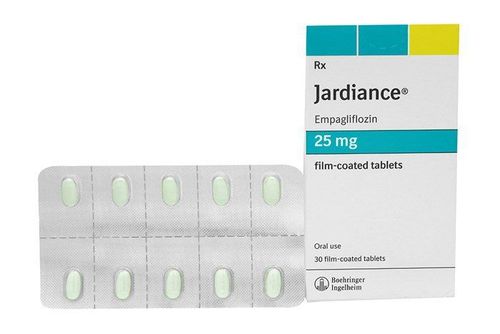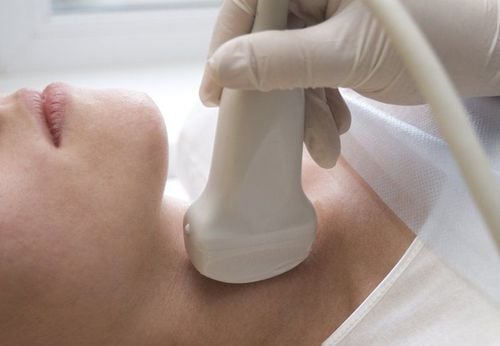This is an automatically translated article.
The article was consulted professionally with MSc. Doctor Vu Thi Duyen - Doctor of Nephrology - Endocrinology, Department of Examination & Internal Medicine - Vinmec Hai Phong International General Hospital.Patients with diabetes, if blood sugar control is not good, but continuously high, will cause many dangerous complications, one of the common complications is gastroparesis. Any diabetic patient needs to understand the danger of complications in order to have a good plan to control these diabetes complications to limit the effects of complications on the patient's health. .
1. What is gastroparesis?
Gastroparesis (also known as delayed gastric circulation) is a disorder when eating food into the stomach, the food stays in the stomach longer than normal because the nerves control movement. Food passes through the digestive tract is damaged and the muscles are weak, so it slows down to push food through the digestive tract. As a result, food stays in the stomach longer and is not digested as it should.2. Gastroparesis complications in diabetic patients
Gastroparesis is a disorder that affects both patients with type 1 diabetes and type 2 diabetes. Nerve damage can occur over time from the effects of high and prolonged blood sugar in people with diabetes. Slow digestion also makes diabetes treatment more difficult.Gastroparesis is difficult to diagnose or misdiagnosed is often overlooked as a disease of the gastrointestinal tract. According to some studies, the rate of gastroparesis in people with diabetes is very high, up to 65%.
Gastroparesis is more common in people diagnosed with diabetes after many years (> 10 years) of high blood sugar that is not well controlled. High blood sugar for a long time causes chemical changes and damage to many nerves. When this condition persists for a long time, it will eventually damage the blood vessels that supply nutrients and oxygen to the body's nerves, including the vagus nerve and eventually lead to paralysis. stomach.
3. Gastroparesis symptoms in diabetic patients
Signs and symptoms of gastroparesis include:heat. Nausea. Vomiting undigested food. Feeling full when eating. Weight loss. Abdominal bloating often. Blood sugar goes up and down erratically. Eating does not feel appetizing. Gastroesophageal reflux disease. Stomach contractions. These symptoms are mild or severe depending on each person and the duration of the disease, the extent of blood sugar control?

Liệt dạ dày có thể gây ra nhiều triệu chứng với các mức độ khác nhau tùy thuộc vào tình trạng bệnh
4. Gastroparesis complications affect blood sugar control in diabetic patients
When there is a complication of gastroparesis, it makes diabetes worse because it makes it difficult to control blood sugar of the patient. Gastroparesis affects many patients with diabetes because it makes it difficult to monitor the digestive process, leading to the patient's sugar levels often being too high or too low and drug treatment facing many difficulties. If the dose is increased, the patient is at increased risk of hypoglycaemia. If the dose is reduced, the patient is at risk of hyperglycemia, so the patient's blood sugar is very unstable. Besides, when food stays for too long in the stomach, it can be a good opportunity for bacteria to overgrow because the food is fermented, so it is easy to get digestive infections. In addition, food can solidify into a solid mass that cannot be digested into a foreign body in the stomach. This in turn irritates the stomach causing symptoms such as nausea, vomiting and blockage in the stomach. This foreign body can be dangerous if it obstructs the passage from the stomach to the small intestine, even causing intestinal obstruction.Gastroparesis is a complication of diabetes and directly affects the patient's health because the patient is trying to change the diet and try to control blood sugar , and felt sick and nauseous to the point of vomiting. People with gastroparesis often feel frustrated and depressed.
5. When is a diabetic patient at risk of gastroparesis?
Female patients with diabetes have a higher risk of gastroparesis than men. Other conditions that may increase the risk include a history of abdominal surgery such as a cesarean section, surgery for gastrointestinal tumors, or a history of eating disorders.Diseases and conditions other than diabetes can cause gastroparesis, such as viral infections, slow-digesting medications, acid reflux disease, smooth muscle disorders.
Other diseases that can cause gastroparesis symptoms include Parkinson's disease, chronic pancreatitis, cystic fibrosis, kidney disease, Turner syndrome. Sometimes the cause of gastroparesis cannot be determined, even after repeated testing.
6. Diagnosis of gastroparesis
Clinical: There is a long history of diabetes, symptoms are: fullness, bloating, poor appetite, vomiting, exhaustion, weight loss etc... Gastroduodenal endoscopy. Stomach supersonic. Combined blood test.7. Methods of treating gastroparesis in diabetic patients

Mục tiêu quan trọng nhất trong điều trị bệnh liệt dạ dày do đái tháo đường là kiểm soát lượng đường huyết
7.1. Use insulin to control blood sugar. When the symptoms of posterior gastroparesis appear: When food enters the digestive tract, it will be absorbed more slowly and at unpredictable times. In order to control blood sugar well, it is necessary to use insulin more often.
7.2. Using drugs to increase gastric contractility Can support additional drugs to increase gastric contractility.
7.3. The diet and diet should be tailored to the individual patient. Changes in eating habits can help control gastroparesis. The patient may be asked to eat several small meals throughout the day: For example, 6 small meals a day instead of 3 large meals. If each meal is in small quantities, there will be less food in the stomach, thus avoiding the phenomenon of the stomach becoming too full.
The doctor may also suggest that the patient try to eat plenty of fluids each day until the blood sugar is stable and the symptoms of gastroparesis improve. Liquid food can pass through the stomach more easily and quickly than solid food. Patients should avoid foods high in fat and fiber because they are difficult to digest for people with gastroparesis and can form bezoars causing gastric obstruction.
7.4. Parenteral or intravenous feeding when the patient has severe gastroparesis. If the above treatments do not work, the patient may need surgery to insert a feeding tube (jejunostomy). This tube allows the delivery of nutrients directly into the small intestine.
Therefore: Diabetics for many years > 10 years, when having any symptoms of gastrointestinal disorders as above, need to see an endocrinologist or gastroenterologist as soon as possible for diagnosis and treatment. early for the patient. Do not wait until serious complications are examined, treatment will be difficult and the chance of recovery is poor.
Please dial HOTLINE for more information or register for an appointment HERE. Download MyVinmec app to make appointments faster and to manage your bookings easily.













